A BIOGRAPHY OF VLADIMIR HOROWITZ
Courtesy: Glenn Plaskin
 |
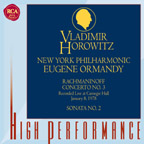 |
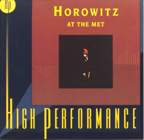 |
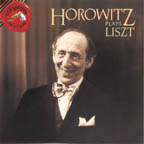 |
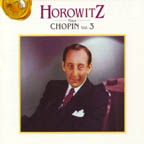 |
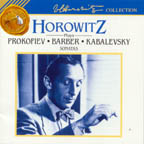 |
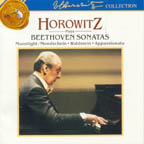 |
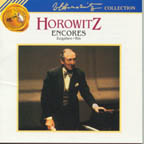 |
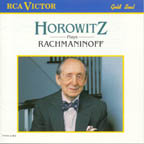 |
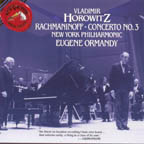 |
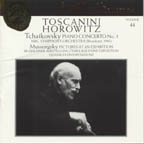 |
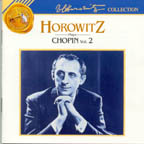 |
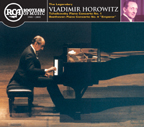 |
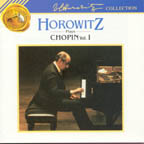 |
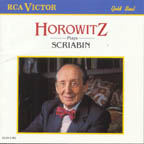 |
NOBODY is going to argue against the proposition that Vladimir Horowitz is one of today's two super-superstars of music. The other is Luciano Pavarotti. Both have extraordinary charisma, they get higher fees than any other living musicians, and both are known all over the world even to those who know nothing about music. To the general public, Mr. Horowitz is the world's greatest pianist, just as Mr. Pavarotti is the world's greatest tenor. Mr. Pavarotti was recently represented by an autobiography, of sorts. Now comes Glenn Plaskin, with the first biography of Mr. Horowitz.
It could not have been an easy job. Mr. Horowitz lives a reclusive life, jealously guards his reputation and is surrounded by friends eager to uphold his legendary status. His wife, Wanda, the daughter of Arturo Toscanini, is a major temperament in her own right, who rules Mr. Horowitz with a strong hand. Despite his phenomenal keyboard prowess, he has not added much to the intellectual life of music. There have been secrets in his private life that have been the subject of much gossip in musical circles but never in the newspapers. Mr. Plaskin has had to do a great deal of digging, over the opposition of the Horowitz family.
He has succeeded in writing a well-researched biography that will throw much light on Horowitz the man and artist, and that will undoubtedly infuriate him and his wife. Mr. Plaskin's credentials are impressive. He is a trained pianist and musician who, fortunately, can write clear, coherent English, and thus there are none of the gaffes that so often happen when laymen try to write about music. Nor is he in awe of his subject - far from it - and thus his book is not hagiography, as the Pavarotti was. Appended to this biography is a fearsomely complete discography compiled by Robert McAlear.
To give an idea of Mr. Plaskin's industry, his researches into Mr. Horowitz's birth can be considered. Mr. Horowitz has said that he was born in Kiev on Oct. 1, 1904. But his first manager said that the birthplace was Berdichev, and a document from a rabbi confirms that city. Mr. Plaskin also has found a first cousin of the pianist who keeps family records that say Mr. Horowitz was born in 1903. Mr. Plaskin explains the shift in locale with the suggestion that Berdichev was considered by Ukrainian Jews ''the lowest of the low,'' and that Mr. Horowitz did not want to be associated with such a wretched town. As for the shift from 1903 to 1904, it could be that Mr. Horowitz's father made his son a year younger so that the Bolsheviks could not detain him for military service.
Mr. Plaskin goes into the pianist's studies at the Kiev Conservatory, his early career in Russia, and his departure for Berlin in 1925. He never went back. It did not take long for him to establish himself as the most electric of the younger pianists of the time. After a hesitant start, he made a sensation in Hamburg with the Tchaikovsky B flat minor Concerto, repeated his success in Paris and soon became a London favorite, even if the critics had reservations. Then came his famous American debut in 1928 - the Tchaikovsky again, with the New York Philharmonic conducted by Sir Thomas Beecham - and Mr. Horowitz became the most talked-about pianist of his time.
Integral to his development was his meeting with Rachmaninoff in the United States. Mr. Horowitz had always loved Rachmaninoff's music and - from records only - his playing. Now the two met, became close friends, discussed music and technique. Rachmaninoff admired Mr. Horowitz above all of the younger pianists.
But if the relationship with Rachmaninoff was fruitful, the Horowitz-Toscanini relationship was, in Mr. Plaskin's opinion, a catastrophe. Toscanini was simply too strong for the young man and browbeat him to the point where he lost his confidence. In addition, Mr. Plaskin suggests that Mr. Horowitz may have married Wanda as a status symbol. The marriage was stormy, and for several years the couple lived apart. Not only did the emotional stress of the Toscanini family enter into the breakup, but another factor in the pianist's eventual nervous breakdown and three retirements, according to the author, were problems of a more personal nature involving the direction of his sexuality.
The long sections about Horowitz the pianist and his musical problems play a large part in the book. Mr. Plaskin's conclusions are as follows: Mr. Horowitz always catered to his public. They came as to a musical tightrope act - that unheard-of technique, the tremendous sonorities, the blockbuster encores such as ''The Stars and Stripes Forever'' - and Mr. Horowitz always gave them what they wanted. At the same time he despised himself for doing that. He wanted to be known as a serious musician, and the public wanted acrobatics. It took Mr. Horowitz years to recover from that musical schizophrenia. Today he seems to have made his peace.
Mr. Plaskin certainly does not flatter his subject. His portrait of Mr. Horowitz shows a vain, neurotic, pampered man with little formal education, who demands adulation. As a teacher he was more a destructive than constructive force, and some of his pupils have never recovered. Indeed, one gets the idea that Mr. Plaskin does not like Vladimir Horowitz very much. He goes out of his way to cite bad reviews and to deglamorize the pianist. Yes, he is a remarkable instrumentalist, but ... The real and implied ''buts'' are everpresent. Yet Mr. Plaskin's picture as a whole is one with which many musicians would agree.
Musicians - but not necessarily pianists. Pianists on the whole look upon Horowitz with awe. For generations young pianists have tried to imitate his style, and all have come to grief. For as a pianist, like or dislike him, Mr. Horowitz is unique. He does have a kind of color, of technique, of sonority, of musical approach, that literally nobody in the world has. And no pianist can so enthrall an audience. Critics and intellectuals may rage at the ''degradation'' of music under the amazing Horowitz hands, but in certain aspects of the repertory he stands alone. He has given us many great performances in the past and will continue to do so as long as he is before the public.